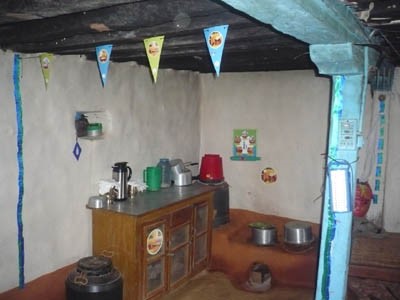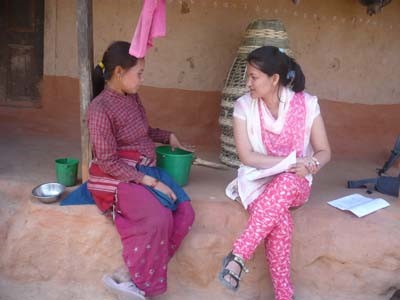Om's Food Hygiene Intervention - June 2013
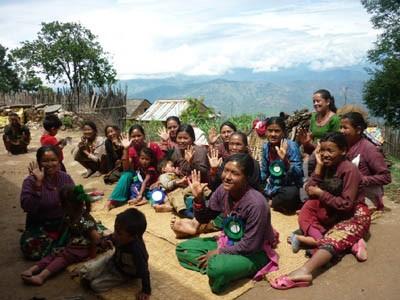
Launching the intervention
I am very excited to tell you about the recent launch of the ‘Food Hygiene Intervention Trial’ in four intervention clusters in Kavre district of Nepal. Altogether 12 launch events took place and community participation was really encouraged. The Regional Health Director from the Ministry of Health & Population, Village Development Committee secretaries, members from project coordination committees, teachers, and local social or political leaders participated in the launch event as guests of honour.
As I mentioned in my earlier blog, the campaign will be implemented over three months and six community events and six sets of households visits will be performed during this period. The main purpose of the first community event was to launch the food hygiene intervention trial, using the concept of an ‘ideal mother’ and the motto ‘safe food, healthy child’ to inform mothers and community members about food hygiene and encouraging behaviour change.
The day before the event, FHMs visited all target households and their neighbouring households and handed over the invitation card to attend in the programme. On the event day, the FHMs prepared the event space with banners and music. All guests were warmly welcome on arrival and invited to take a seat after cutting their fingernails and washing their hands with soap. Guests were then given an overview of the food hygiene programme before some FHMs danced to the programme song. One of the guests of honour gave an overview of the objective of the three months programme.
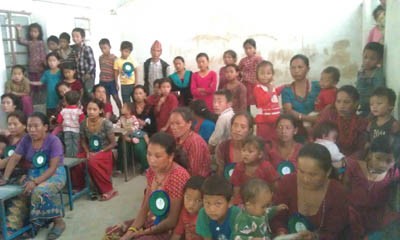

Ideal mother introduced
To start, FHMs reflected on the current situation of the village by telling story, using images and video clips showing current food hygiene practices representing ‘disgusting’ and ‘safe’ behaviours. Using a flip chart, FHM highlighted five key food hygiene behaviours which they linked with the concept of an ‘ideal mother’. The social, economic and public health importance and benefits of performing five key food hygiene behaviours were carefully articulated.


Pledging
Next, one of the guests of honour made an appeal to all mothers to commit to performing the five key food hygiene behaviours. Mothers were then asked to take an oath and were then presented with a ‘commitment certificate’. FHMs then scheduled the first household visit starting the very next day.
At the end of the programme, all participants and guests marched through the local area to the food hygiene programme song, holding flags showing the programme logo and chanting ‘safe food, healthy child’ and ‘we want, ideal mother’.
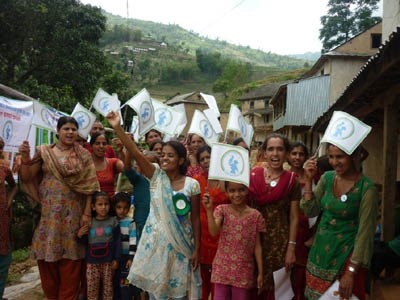
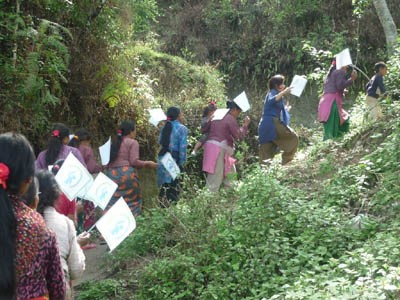
Next steps
The launch event was followed as soon as possible by the first household visit. The aim of this visit is to brief all family members about the food hygiene campaign and its objectives, perform a kitchen makeover, reinforce five key food hygiene behaviours, and prepare a three month action plan for each household. Each FHM is responsible for around 10-12 households and each first household visit takes at least one day.

